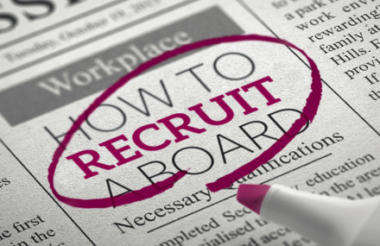One in ten charity recruiters have set diversity targets, with 5.3% of respondents having set targets about longlists or shortlists, according to a poll carried out by a jobs board.
The non-profit job board CharityJob surveyed more than 300 charities for its report How UK Charities Recruit, which asked about what action respondents have taken since the start of 2020 to address equality, diversity and inclusion issues in recruitment.
The survey received 334 responses from 328 charities, but CharityJob stresses that the sample is “not representative of the UK charity sector” but “more likely to be reflective of charities that use CharityJob for their recruitment”.
One third of charity respondents to the survey said they engaged managers in equality, diversity and inclusion efforts when it came to recruiting and just over 32% arranged for an employee to undertake diversity or bias training.
Some 37% of respondents said that their recruitment processes had been audited since the start of 2020. The report suggests: “At just more than one in three, this seems low given the importance of recruitment and of diversity, fairness, and effectiveness, and how much the world has changed since the start of 2020. However, it could reflect other priorities and the need to concentrate limited resources elsewhere.”
Diversity of applicants
Just over half (52%) of respondents said they had drafted for the first time, or redrafted, their equality, diversity and inclusion statements after the pandemic.
Meanwhile 22.4% of respondents said they had examined their recruitment data to understand the diversity of applicants at each stage of the selection process.
Before finalising a job advert, 9% of those surveyed had an equality, diversity and inclusion expert assess it. To make judging candidates fairer, 59% of respondents had an interview panel with a diverse member of the panel present.
Notably, just under 3% of the respondents admitted to positive discrimination by recruiting someone because they had a protected characteristic, such as being part of an ethnic minority, a woman, someone who is LGBTQ+ or someone with a disability.
The report reads: “Some argue that treating all candidates equally, removing identifying information to focus just on skills, is fair. Others argue that focusing on skills without considering the context in which those skills were developed is unfair. For many jobs, making a hiring decision irrespective of gender is fair, but for some jobs it is necessary that someone with certain protected characteristics is appointed.”
Flexible working
Some 58.9% of respondents had reviewed flexible working policies since the pandemic, in an effort to improve recruitment processes and make charity jobs more accessible.
Furthermore 35% of respondents had reviewed uptake on flexible working.
“Highlighting flexible working makes adverts more welcoming to those with disabilities or caring responsibilities and so can make the jobs more appealing to a wider range of potential applicants,” the report adds.
Indeed, CEO of The Kite Trust Pip Gardner called for flexible working to be prioritised in the sector last week due to its benefits.
Making charity recruitment fairer
CharityJob concludes “there is no single step that will ensure fairness in recruitment” but many things that could be done to increase it. One of these is advertising a job publicly so it has a wider reach and can be seen by all rather than only accessed by a select few.
Anonymous recruitment may also be effective in making charity recruitment fairer, the report said. This is where CV and cover letters have the candidate’s personal details removed so no conscious or unconscious bias can affect a judging panels decision.
The report includes a case study from James Sabala, human resources officer at Power to Change, who argues: “Anonymous recruitment is the number one thing to ensure fairness, something that all organisations should do, while using work samples is number two.”
At Power to Change job descriptions are run through a gendered language decoder and all job applications are anonymised. Junior role applicants are asked to complete a practical task to make the process fairer for those with less experience.
Related articles












